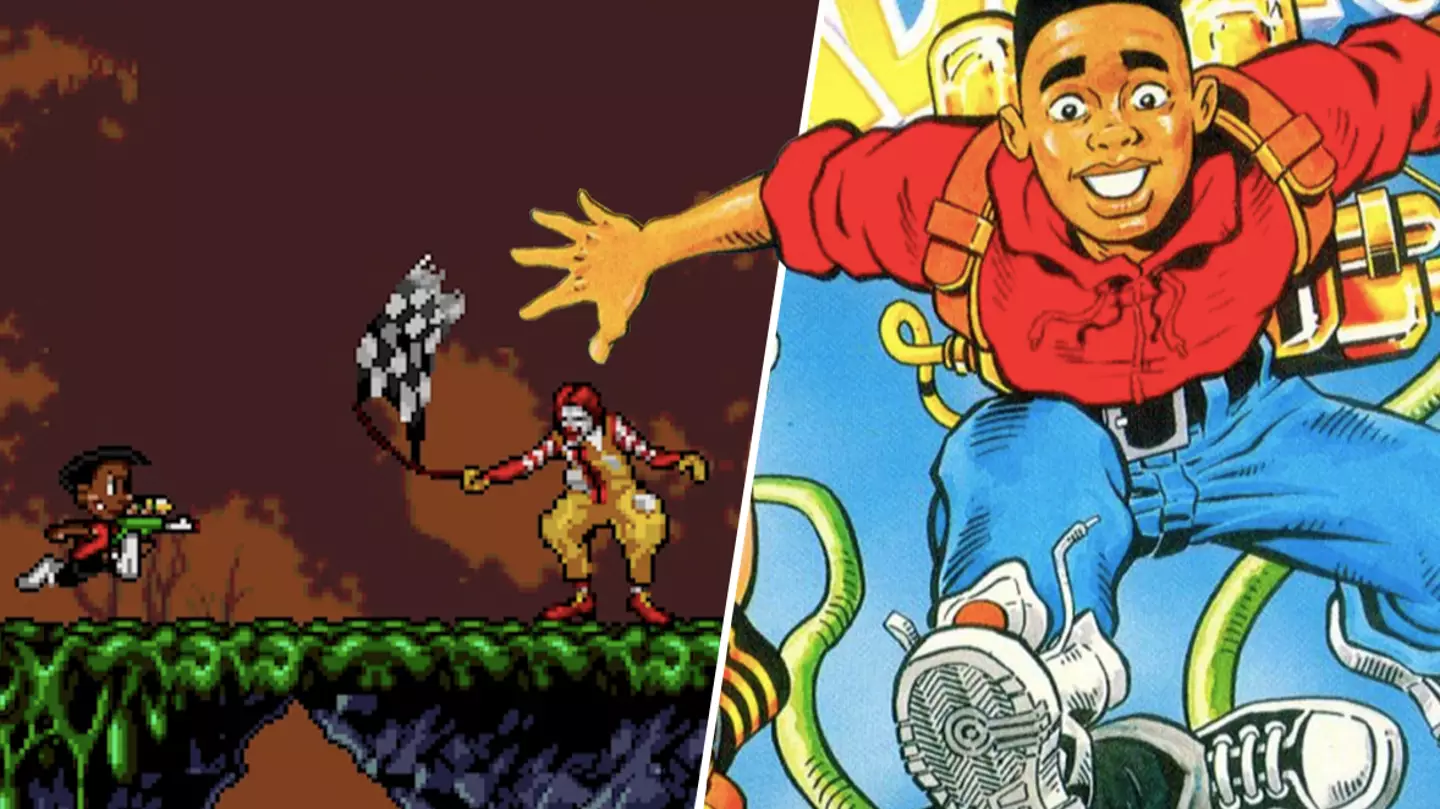
In August 2021, the Big Issue ran a headline claiming that plastic waste from McDonald’s was, amongst that from a handful of other companies too, clogging up Britain’s coastlines. Research from Surfers Against Sewage highlighted the home of the Golden Arches as one of 12 brands responsible for very nearly two-thirds of all packing pollution across the UK. Back in 2020, it was reported that McDonald’s packaging accounted for half of all fast-food litter in England.
The restaurant chain, which has around 1,300 locations in the UK, has laid out a number of pledges to counteract its environmental impact, including a commitment to reach net zero on emissions, which can be seen at its website. But with the United Nations’ Climate Change Conference, Cop26, dominating the news at the time of writing, it can’t be ignored that McDonald’s is amongst the world’s biggest buyer of beef, and the raising of cattle for slaughter to feed the world’s appetite for meat is the number one cause of tropical forest deforestation. And those rainforests, we kinda need them.
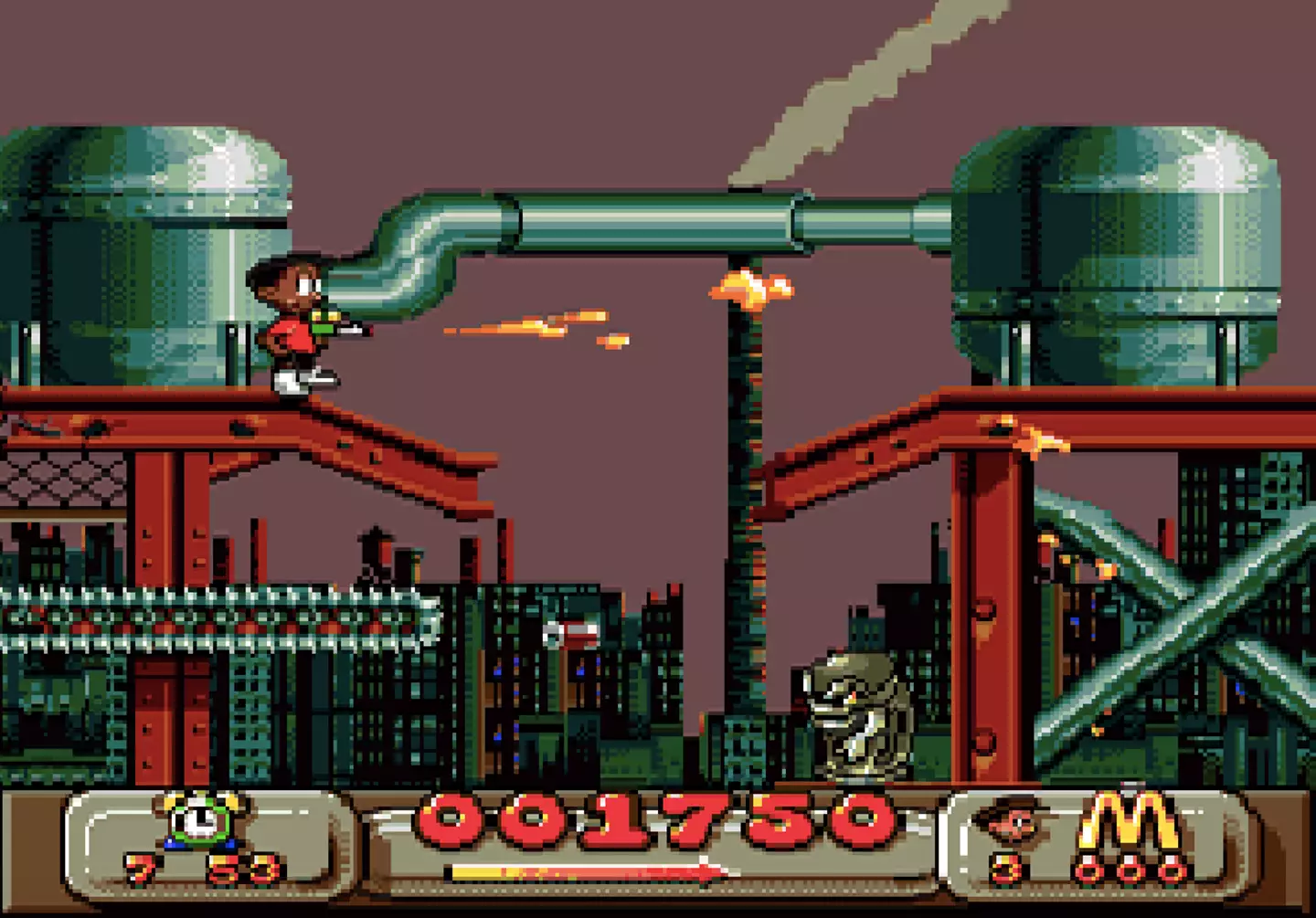
Suffice to say that McDonald’s isn’t exactly a global leader in combating mankind’s ever-growing, surely irreversible scar upon the natural world, right now. But would you be surprised if I told you that in the 1990s, at a time when the chain wasn’t talking about reducing its plastic use and introducing vegan options into its menu, McDonald’s put its name to a video game about protecting the environment? I guess not, as you’re here and the headline kind of gave it away. Nevertheless, let’s get into it.
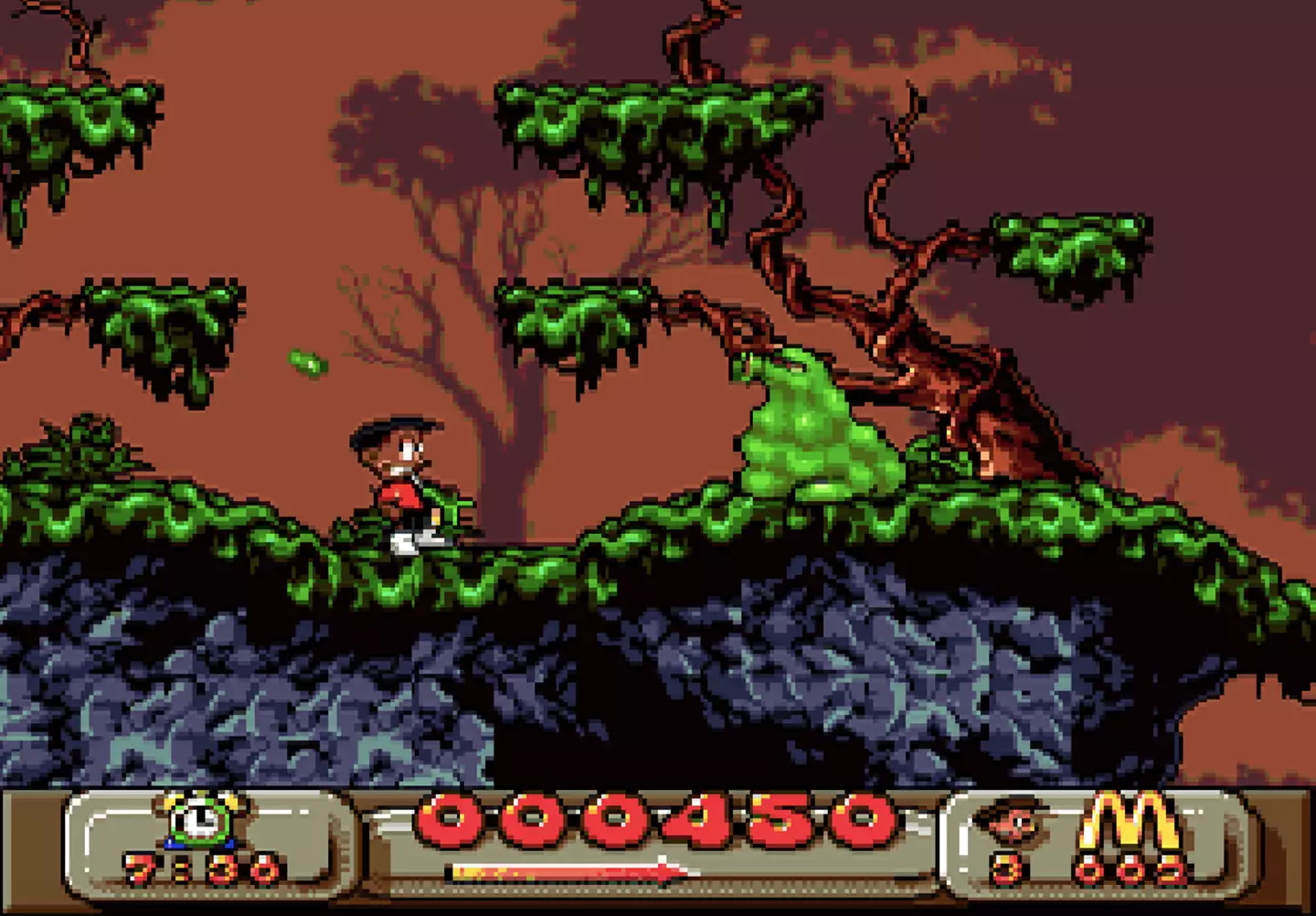
Released for the SEGA Mega Drive/Genesis in late 1992 as well as the Japanese giant’s 8-bit Master System and handheld Game Gear systems, and the Commodore Amiga, Global Gladiators wasn’t the first video game to feature McDonald’s branding both in-game and on its packaging and promotional materials. That honour goes to 1988’s wholly generic platformer Donald Land, a Japan-only release for the Nintendo Famicom developed by arcade legends Data East. The company’s Ronald McDonald mascot was known as Donald in Japan, hence the game’s title. It’s really not one to rush out and find on eBay.
Advert
If you want to play Mega Drive games today, the Mega Drive Mini from 2019 is one of your best HD-ready options…
In the West, M.C. Kids for the NES beat Global Gladiators to release by a few months - it’s a fairly unremarkable Mario-alike that’s harmless enough fun if you’re really into running and leaping from left to right, and chucking blocks at enemies (don’t try to jump on their heads, as you’ll die - that’s where this does differ from Super Mario Bros.). Where Global Gladiators does win out, though, is in its gameplay - I mean, and its looks, and music, but that’s perhaps unfair given the leap from the 8-bit NES to SEGA’s 16-bit platform. It’s a run-and-gunner with platforming elements, Contra-ish but cuter, set across four sprawling levels - and the aim of the game is to save the planet from all sorts of nasty pollution.
Only, actually, it’s not. Or at least, that’s not spelled out at the start of the game. The two playable characters of Mick and Mack - the very same protagonists of M.C. Kids - set out not to clean up the world, but to escape a comic book they’ve been teleported into by… Ronald McDonald, which kinda makes him the villain here, maybe? He’s also at the end of each stage too, waving a chequered finishing line flag as the game counts all the McDonald’s arches you’ve collected. And collecting them all isn’t easy, as Global Gladiators’ enemy count is way higher than your Mario or Sonic games of the time. It’s entirely likely you’ll lose a few lives on the very first stage of Global Gladiators on your initial attempts, as you get used to some floaty jumps and the range of Mick and Mack’s baddies-popping ‘water’ guns (looks more like burger sauce tbh).
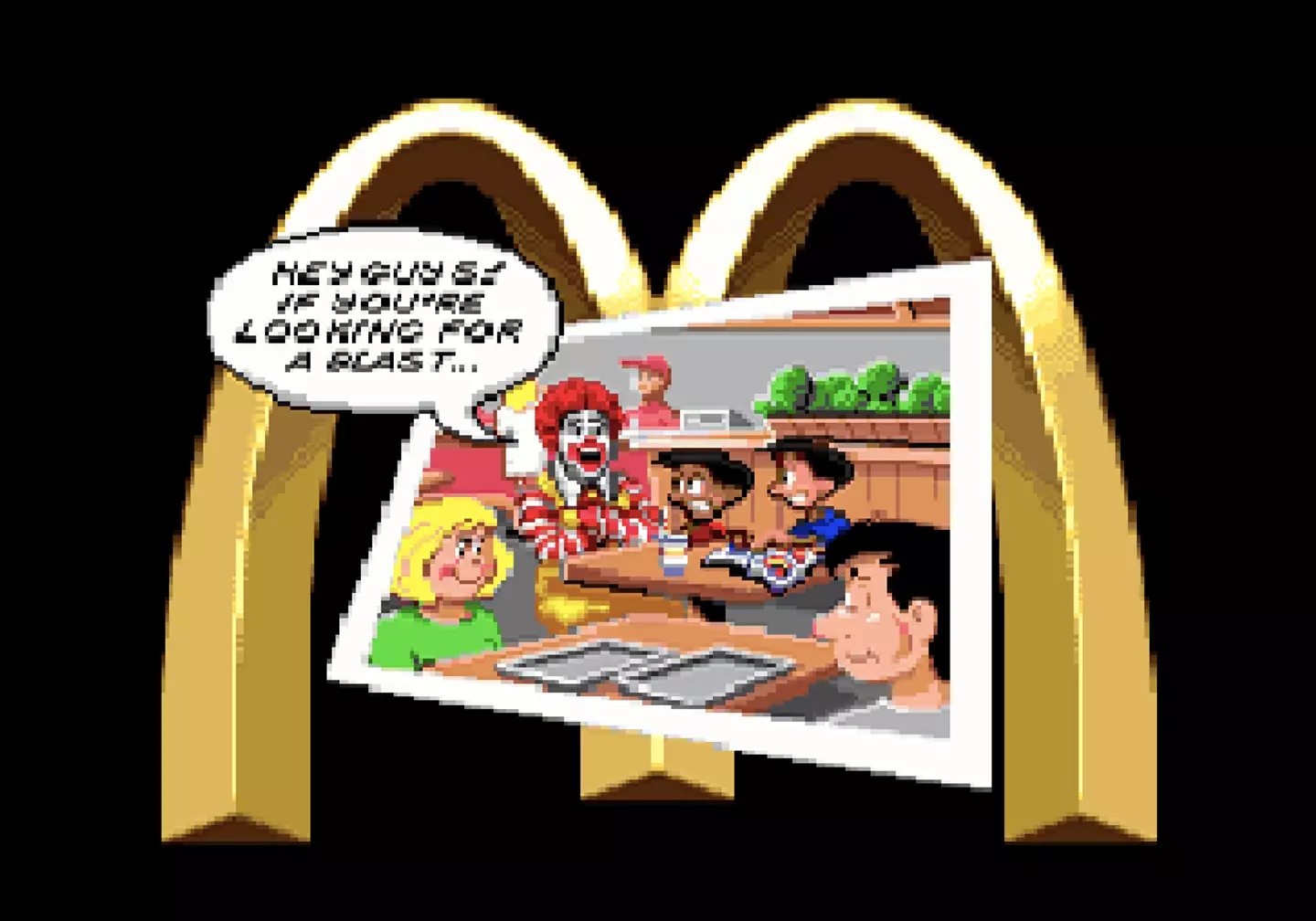
You’ll need to find at least 30 arches to exit each level, but get 75 before strolling over to Big Ron and his big flag and you’ll unlock a bonus stage where you can win extra lives and continues. Trash falls from the sky, and you have to promptly toss it into the relevant recycling bin: glass, cans, or paper. Here’s where the environment message of Global Gladiators comes through most clearly - recycle to make things better for yourself in the future. The game’s main stages too are clearly designed to paint a picture of what could happen to the planet: the first is Slime World, overtaken with gloopy filth and gruesome monsters, and later comes Toxitown, a smoggy stage full of sentient trash cans throwing up their contents.
Advert
Finish the game - after a face-off with a sort of demonic snow wall in the Arctic, who sends icicles down upon you and spits out bats (the environmental message is rather blurred at this point) - and you’re rewarded with a congratulatory message: “With your help, Mick and Mack have travelled the globe, conquered the mutants of environmental destruction, recycled the planet’s natural resources, and have proven themselves to be true Global Gladiators.” Nice one, I guess that’s the Earth’s problems sorted. And then, a tease: “Until the next issue…?”
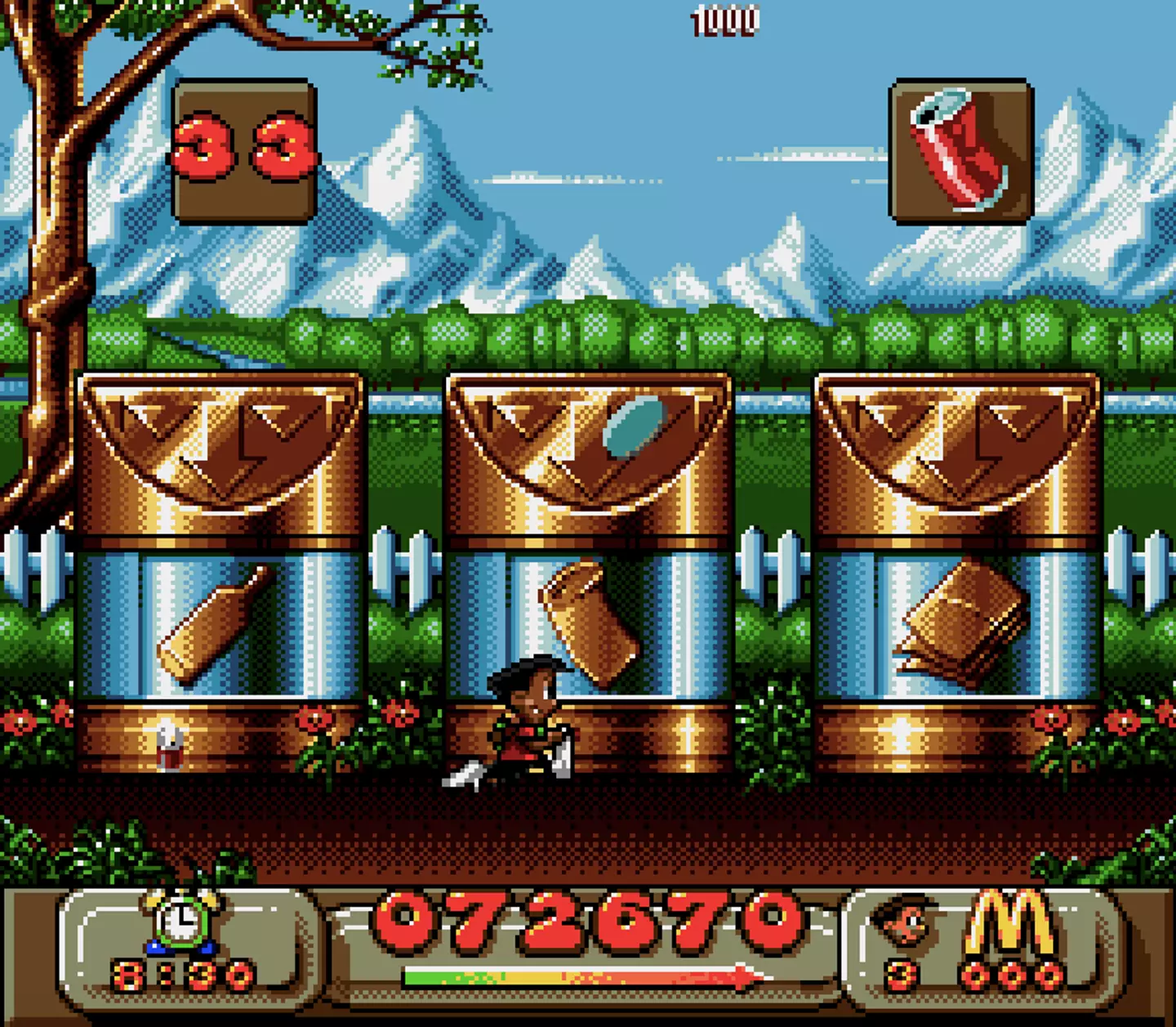
Which, somewhat predictably, never came. More McDonald’s-branded games have come out since Global Gladiators, including 1993’s platformer McDonald’s Treasure Land Adventure on the Mega Drive/Genesis, a not-totally-terrible (and absolutely retinas-searing) effort from Treasure, the creators of Gunstar Heroes and Dynamite Headdy. But in terms of appealing gameplay and a pertinent message beneath all the jumping and splatting, Global Gladiators is absolutely the best game out there to feature the McDonald’s name. Which, perhaps shouldn’t be all that surprising given the talented team behind it.
Global Gladiators was designed and programmed by David Perry - and while he’d already established himself as a sought-after developer through projects like the home port of the arcade hit Smash TV and Teenage Mutant Ninja Turtles for the NES, it’s his work on 1993’s Disney’s Aladdin and 1994’s Earthworm Jim on SEGA’s 16-bit console that really turned heads. The slick animation and high-contrast palettes in Global Gladiators really feel like a test run of sorts for what would come next; so too the action-packed gameplay, which would be refined in later titles.
Advert
So there you go: McDonald’s once made a video game all about protecting the environment. Which is pretty ironic, when the same McDonald’s is the source of a huge amount of waste, littered around our streets and wild spaces, today. Sure, it’s making changes, taking steps, talking the talk - but it’s practically impossible to walk through a city centre in the UK and not see a discarded McDonald’s wrapper, cup or box, blowing around on the breeze or sticking out of a hedge. That’s where we’re at - but if you want to virtually fight back against the threat of pollution, Global Gladiators remains a fun way to blast away an hour.
Featured Image Credit: Virgin GamesTopics: Retro Gaming, Sega, Opinion